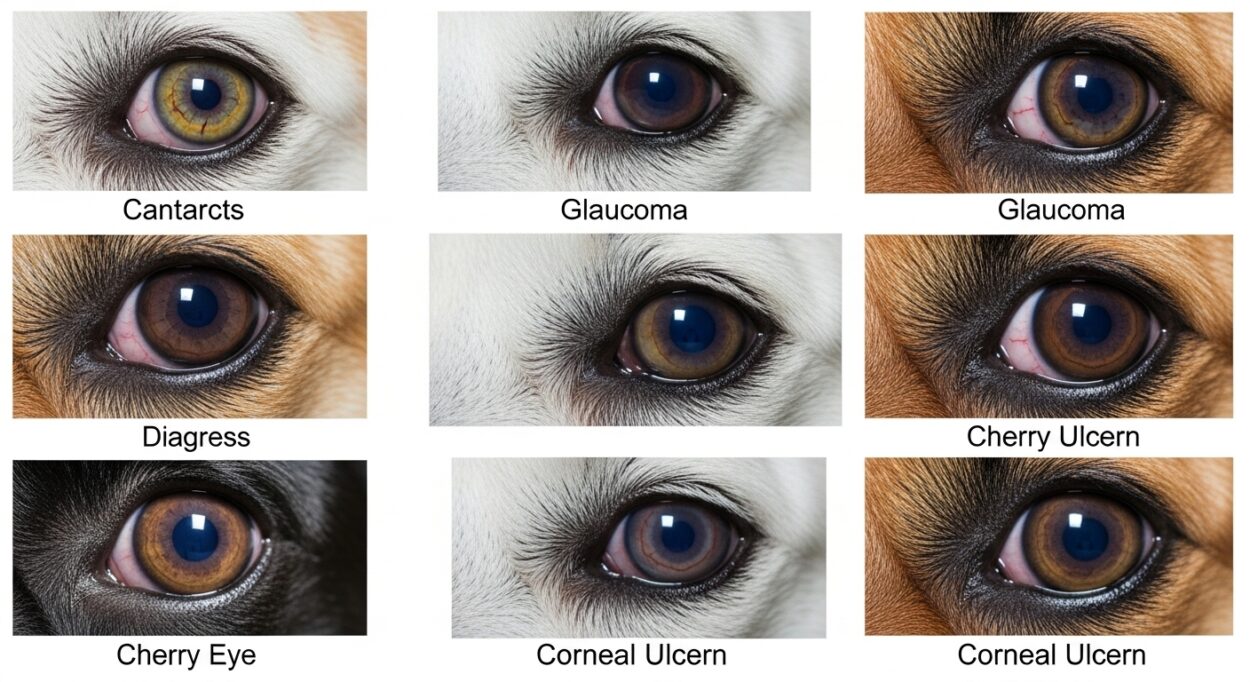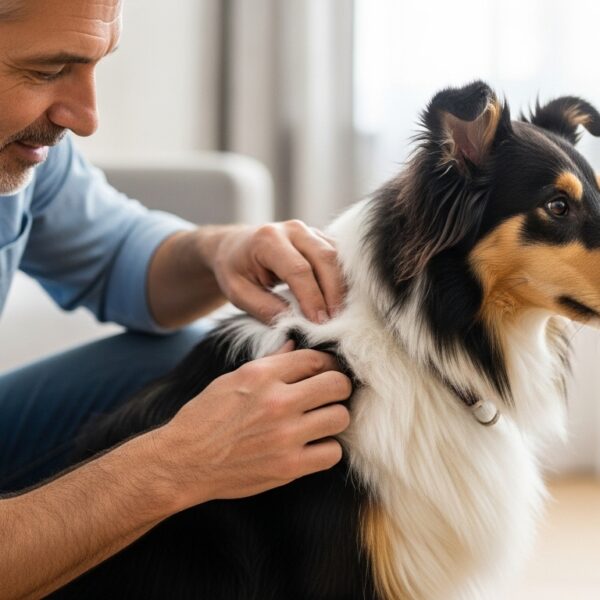Table of Contents
Introduction
Just like people, dogs can suffer from a wide range of eye health problems—sometimes minor, sometimes serious. If your dog’s eyes look unusual, or if you notice squinting or discharge, it’s time to pay attention. Knowing the signs of dog eye health issues means you can get your furry friend the help they need fast. In this guide, we’ll cover the main causes, easy-to-spot symptoms, and the best treatment options—so your dog can see the world as clearly and comfortably as possible!

Common Causes of Dog Eye Health Issues
Dog eyes are sensitive. Several things can trigger eye problems, including:
- Infections: Bacterial, viral, and even fungal infections can all cause inflammation, redness, and discharge.
- Allergies: Just like humans, dogs can react to dust, pollen, smoke, or food—causing watery or itchy eyes.
- Injury or Trauma: A scratch from play, rubbing on furniture, or a foreign object can damage the eye.
- Dry Eye (Keratoconjunctivitis Sicca): Some dogs have tear glands that don’t make enough moisture, leading to irritation.
- Glaucoma: Increased pressure inside the eye that can quickly cause pain and vision loss if untreated.
- Cataracts: Older dogs or certain breeds may develop cloudy eyes from cataracts, affecting vision.
- Conjunctivitis (Pink Eye): Red, swollen eye membranes are common in dogs and just as uncomfortable as in people.
Pro Tip: Some breeds—like Pugs, Bulldogs, and Shih Tzus—are more likely to develop dog eye health issues because of their eye shape.

How To Spot Dog Eye Health Issues: Symptoms To Watch For
Dogs can’t tell us when their eyes hurt, but the signs are pretty clear if you know what to look for:
- Redness or swelling
- Watery or thick discharge (clear, yellow, or green)
- Squinting or frequent blinking
- Rubbing or pawing at the eyes
- Cloudy or bluish appearance of the eye
- Visible third eyelid
- Sensitivity to light
- Bumping into objects or acting confused (possible vision change)
If you notice any of these symptoms—or if your dog’s eye suddenly looks different—don’t wait! Quick action can help save your dog’s vision.
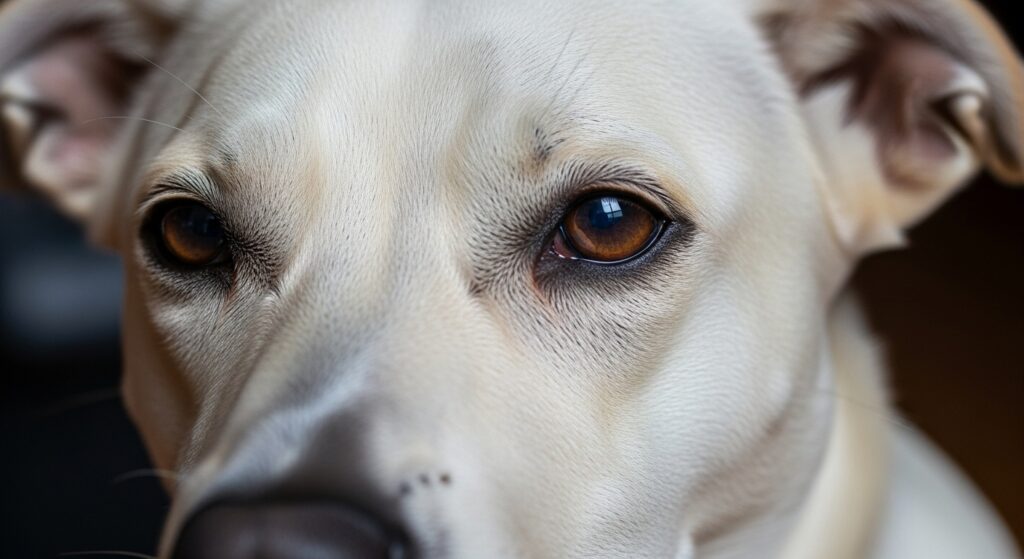
Treatment Options for Dog Eye Health Issues
1. Veterinary Exam First
If your dog shows any of the symptoms above, schedule a vet visit right away. Most eye problems need expert care!
2. Medications
- Antibiotic or Antiviral Eye Drops/Ointments: For infections.
- Anti-inflammatory drops: To reduce pain and swelling.
- Special lubricating drops: For dry eye.
3. Surgical Treatments
For serious eye injuries, advanced cataracts, or severe glaucoma, surgery might be needed.
4. At-Home Eye Care Tips
- Keep the area clean: Use a clean, damp cloth to gently wipe away discharge.
- Dog-safe saline rinse: Helpful for mild irritation or removing debris (never use human eye drops!).
- Prevent scratching: Use an Elizabethan collar if your dog keeps rubbing the eye.
- Follow all medication instructions: Finish the full course, even if symptoms improve.
Never treat a dog’s eye problem with home remedies or old medication. Eye issues can get much worse very quickly!
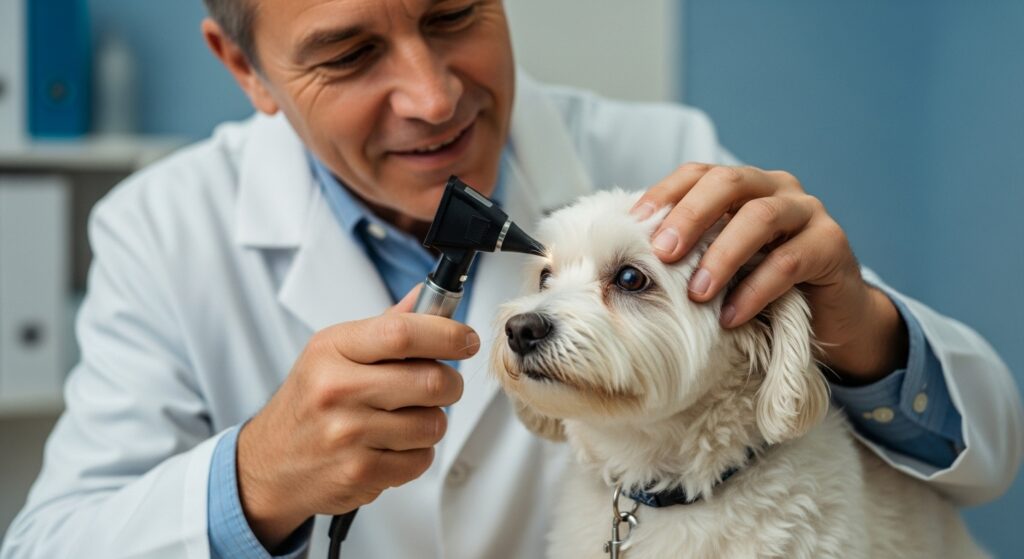
Prevention: Keeping Your Dog’s Eyes Healthy
- Regular vet checkups: Early detection is best!
- Trim hair around eyes: For long-haired breeds, to prevent irritation.
- Keep play areas free from sharp objects: Avoid accidental injury.
- Watch for signs: Catch problems early for the best chance of a full recovery.
Frequently Asked Questions About Dog Eye Health Issues
Q1: Can I use human eye drops on my dog?A1: No, never use human eye drops on a dog unless specifically told to by your vet. Some can make the condition much worse.
Q2: Are some breeds more at risk for eye problems?A2: Yes! Brachycephalic breeds (like Pugs, Bulldogs, and Shih Tzus) and older dogs are at higher risk due to eye structure and age.
Q3: Can allergies cause eye problems in dogs?A3: Absolutely. Allergies can cause red, itchy, or watery eyes—just like in humans.
Q4: How do I know if my dog has vision problems?A4: Signs include bumping into objects, confusion in new spaces, and avoiding stairs. If you notice these, visit your vet.
Q5: What should I do in an eye emergency?A5: If your dog’s eye is bleeding, bulging, or suddenly cloudy—get to the vet or pet ER ASAP! Eyes are delicate and can worsen quickly.
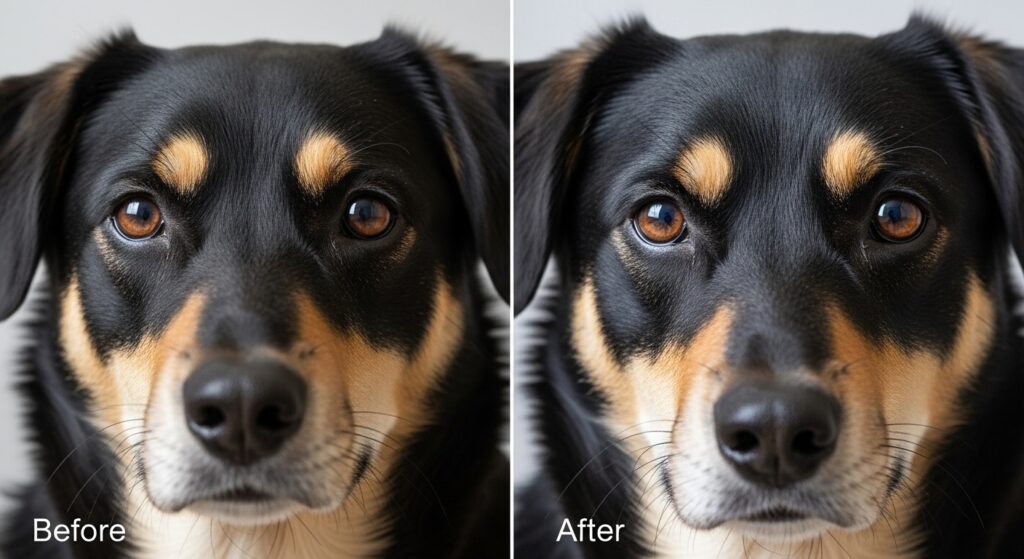
Conclusion
Dog eye health issues can be scary, but with quick action and the right care, most eye problems can be treated successfully. Always pay attention to changes in your dog’s eyes, and never hesitate to call your vet if something seems off. Keeping an eye (pun intended!) on your pup’s health means a happier, healthier dog for years to come.

